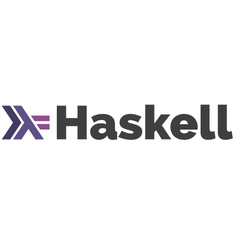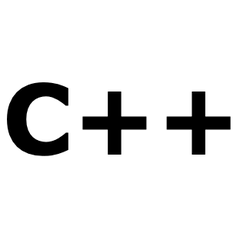
Julia
Designed for high performance, Julia compiles to efficient native code for multiple platforms, leveraging LLVM. Its dynamic typing and multiple dispatch facilitate expressive programming. With robust support for parallel computing and extensive libraries for data science, machine learning, and scientific computing, Julia empowers developers to create applications and microservices seamlessly.
Top Julia Alternatives
FLooP
FLooP is a recursive block-structured programming language created by Douglas Hofstadter for his renowned work, "Gödel, Escher, Bach." It is characterized by its straightforward subroutine structure, basic number and boolean operations, and support for unbounded loops, distinguishing it from its counterpart, BLooP..
Julia
Designed for high performance, Julia compiles to efficient native code for multiple platforms, leveraging LLVM.
FLooP
FLooP is a recursive block-structured programming language created by Douglas Hofstadter for his renowned work, "Gödel, Escher, Bach." It is characterized by its straightforward subroutine structure, basic number and boolean operations, and support for unbounded loops, distinguishing it from its counterpart, BLooP..
JavaScript
JavaScript serves as a powerful scripting language for web development, enabling the creation of interactive and dynamic web elements.
BLooP
BLooP serves as an academic exploration of computational models, particularly reminiscent of early Random Access Machines.
JavaScript
JavaScript serves as a powerful scripting language for web development, enabling the creation of interactive and dynamic web elements.
BLooP
Though not widely implemented, it showcases constructs like 'CELL(0) = 2', illustrating fundamental programming concepts...
Pascal
It supports numerous operating systems, from Windows to embedded platforms...
Haskell
Its pure functional nature eliminates side effects, using expressions instead of mutable statements...
Pascal
It supports numerous operating systems, from Windows to embedded platforms...
Haskell
Its pure functional nature eliminates side effects, using expressions instead of mutable statements...
GameMaker Language (GML)
It empowers users to build games flexibly while harnessing the capabilities of major programming languages...
C++
Its syntax, while initially appearing cryptic due to special characters, enables clear and efficient communication...
GameMaker Language (GML)
It empowers users to build games flexibly while harnessing the capabilities of major programming languages...
C++
Its syntax, while initially appearing cryptic due to special characters, enables clear and efficient communication...
Top Julia Features
- High performance native code
- Dynamic typing like scripting
- Multiple dispatch paradigm
- Asynchronous I/O capabilities
- Easy metaprogramming support
- Built-in debugging tools
- Comprehensive package manager
- Support for interactive use
- Reproducible environments across platforms
- Advanced parallel computing primitives
- GPU code generation
- Foreign function interfaces
- Unified machine learning interface
- Extensive scientific computing tools
- Robust data ecosystem
- Versatile data visualization options
- Strong community support
- Cross-platform deployment capabilities
- Custom application building
- Open source collaboration.






